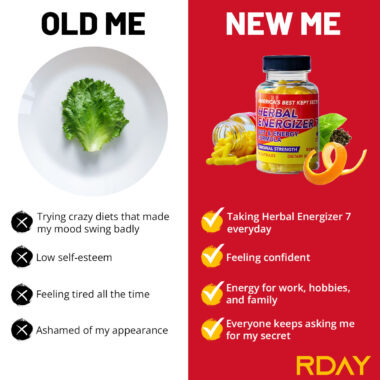Our libido is not something we often think about — until we do not have it. Our sex drive helps in forming and maintaining intimate relationships; it helps keep the spark alive between couples, and many women associate it with emotional closeness. So, when our sex drive wanes, there can be a domino effect on how we function. Libido changes naturally throughout our lives — especially for women, as outlined in this insightful article.
It’s natural for you to experience changes in your sex drive, even from day to day. Your sex drive can also hit some highs and lows as you age due to your menstrual cycle, pregnancy, menopause, and life changes.1
“Sex drive does often decrease with age,” John Thoppil, MD, an Austin, Texas-based OB-GYN, told Health. Of course, you won’t notice a dramatic difference in your libido when you enter a new decade, but factors that affect your libido just tend to happen as you transition from your 20s to your 40s (and beyond).
What Causes Low Sex Drive?
Your sex drive, aka your libido, is your desire to have sex. Many factors —both biological and psychological —influence whether you feel like having sex at any age.1
Sex hormones such as testosterone, estrogen, and progesterone — hormones everyone produces — play a role in desire, arousal, and orgasm. As you age, these hormones naturally start to dip and can lead to a lower sex drive.2 However, there’s no “normal” level of sex drive as you age, and hormones alone don’t affect your libido.
“[Stress] is the biggest sex killer,” Jennifer Landa, MD, an OB-GYN and chief medical officer at BodyLogicMD in Orlando, Florida, told Health. Anxiety and depression can also lead to a low sex drive.3 In addition, many antidepressants that treat mental health conditions can lead to low sex drive, too.3 Eating a balanced diet, working out regularly, and getting enough rest can influence your mood and health, which, in turn, can affect your desire for sex, said Dr. Landa.
Libido at any age is complex. “Sex is an elaborate cocktail of our identities, our feelings, our desires, and actions,” Shadeen Francis, a relationship therapist and author based in Philadelphia, told Health. And while your sexual desires can change at any time, specific trends tend to sync with your 20s, 30s, and 40s which may change your sex drive.
Your Sex Drive In Your 20s
Like many bodily drives and functions, your sex drive is usually pretty strong in your 20s. “The biological drive to reproduce is in full force,” Dr. Landa said. Your libido-boosting testosterone levels haven’t started to decline just yet, and females are more fertile in their 20s and early 30s.25
The hormonal changes during your menstrual cycle also affect your sex drive. When you’re on your period, your estrogen drops and slowly rises during your follicular phase — which revs up your libido. About two weeks later during ovulation (your peak fertile window), your testosterone and estrogen levels are at their highest and get you in the mood for sex. Post ovulation, these levels drop and can decrease your sex drive.62
If your sex drive is low in your 20s, it could be due to your birth control.7 “It doesn’t have this effect on everyone, but some women will experience lower testosterone levels on the pill, which can lead to lower libido and even to vaginal dryness in some young women,” explains Dr. Landa. So if you’re dealing with a low sex drive in your 20s, consider checking in with your healthcare provider. They can help rule out other health conditions or switch your birth control method.
Your Sex Drive In Your 30s
If your craving for physical intimacy declines in your 30s, dropping testosterone levels may be to blame.2 “This dip can cause a natural decrease in sex drive,” says Dr. Landa. In addition, the stress of career building and increasing life responsibilities can also lower sex drive. Stress can suppress the sex hormone testosterone and elevate the stress hormone cortisol.8
Those hormonal changes you experience during your menstrual cycle can also influence your sex drive in your 30s. And even as your fertility declines in your mid-30s, many folks often wait until their 30s to have kids.5 According to 2019 United States Census Bureau data, the median age women give birth in the U.S. is 30. Plus, more 35- to 39-year-old women are having children.9 So in your 30s, or any age you decide to have a baby, you may deal with low sex drive associated with pregnancy and kids.
The hormone shifts that occur through each trimester of pregnancy can trigger a lack of desire.10 Drops in estrogen after childbirth and breastfeeding can also cause vaginal dryness, which could make sex uncomfortable and undesirable.11 Add in the fatigue of raising children, and you may notice you’re not craving or having as much sex as usual.4
Although it could be discouraging for you and your partner if you’re not in the mood for sex, having open communication about your sex drive is key. “Being able to express your needs and negotiate them with your partner keeps your overall relationship feeling an intimate connection, even on those nights when all you are interested in is a hand massage and an hour of alone time,” Francis says.
Francis also suggests basic stress reduction techniques (like yoga or meditation) may help with stress-related declines in sex drive. If you’re dealing with vaginal dryness or low libido after childbirth, your healthcare provider may also suggest hormonal treatments, vaginal lubricants, or vaginal moisturizers.12
Your Sex Drive In Your 40s and Beyond
Significant hormonal changes are common as you transition into menopause between 45 and 55.13
National Institute on Aging. What is menopause?
During perimenopause – the 5-10 year stretch before menopause – your ovaries gradually decrease estrogen production until you reach menopause and stop having a period.14 This drop during perimenopause and menopause can lower your sex drive and alter how sex feels as you lose some natural vaginal lubrication.11
“A drop in estrogen can make vaginal tissue drier, and sex can be painful,” says Dr. Thoppil. Decreased progesterone levels, which Dr. Landa calls the “calming” hormone, may also lead to heavier periods, more PMS, weight gain, moodiness, insomnia, and irritability.
But it’s hardly all bad news. Your 40s and 50s can also be a sexually liberating time. You know your body and what turns you on by now, and you’re more likely to speak up about what you like. And by the time menopause happens (usually between 45 and 55), you may feel sexier since you don’t have to worry about pregnancy.
If it bothers you that vaginal dryness and other menopause side effects have lowered your libido, Dr. Landa suggests seeing your healthcare provider. “Treatment with progesterone or testosterone or both in some women can help to improve sex drive,” she says. What you’re experiencing could also be a natural and temporary part of aging.
Francis advises anticipating that your body will evolve and responding with curiosity, not negativity. “Maintaining a relationship of exploration with your body gives you permission to find acceptance of what it is not, and find pleasure in what is,” she says.
When To See A Healthcare Provider About Low Sex Drive
It’s OK if you’re not always “in the mood” for sex. Sex drive ebbs and flows daily, not just with age, and there’s also no right amount of sex drive. But if you experience a dip in sexual desires, your libido will typically return to your normal.
However, if your desire for sex doesn’t return and starts affecting your mental health and relationship, talk with a healthcare provider or sex therapist. A low sex drive that doesn’t return after at least 6 months, and causes you extended stress and frustration, is considered hypoactive sexual desire disorder (HSDD).15
Depending on your situation, changing medications or treating specific health conditions may help increase your sex drive. Therapy may also help you manage life and relationship stressors so you can start getting your mojo back.
If your low sex drive is related to hormone changes from childbirth or menopause, your healthcare provider may suggest hormonal treatments. If vaginal dryness makes you avoid sex because of pain, using a vaginal lubricant or vaginal moisturizer can also help make sex comfortable again.12
Spice up your libido with DMAX Unleashed for Women through RDay. This all-plant-based supplement contains herbal, root, leaf, and plant extracts and may help women increase their sex drive. RDay is a trusted, reliable, and established source of effective health supplements. Questions? Call us at 800.447.8841 or follow us on Facebook.
Reference : [https://www.health.com/condition/sexual-health/female-sex-drive-changes-20s-30s-40s]














